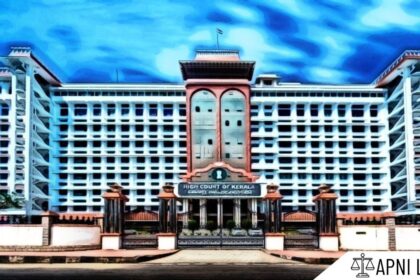Code: Section 364 BNSS
(1) Whenever a Magistrate is of opinion, after hearing the evidence for the prosecution and the accused, that the accused is guilty, and that he ought to receive a punishment different in kind from, or more severe than, that which such Magistrate is empowered to inflict, or, being a Magistrate of the second class, is of opinion that the accused ought to be required to execute a bond under Section 125 BNSS, he may record the opinion and submit his proceedings, and forward the accused, to the Chief Judicial Magistrate to whom he is subordinate.
(2) When more accused persons than one are being tried together, and the Magistrate considers it necessary to proceed under sub-section (1) in regard to any of such accused, he shall forward all the accused who are in his opinion guilty to the Chief Judicial Magistrate.
(3) The Chief Judicial Magistrate to whom the proceedings are submitted may, if he thinks fit, examine the parties and recall and examine any witness who has already given evidence in the case and may call for and take any further evidence.
The Chief Judicial Magistrate shall then pass such judgment, sentence, or order in the case as he thinks fit and is according to law.
Explanation of Section 364 BNSS
This section outlines the procedure for a Magistrate when they believe that the punishment required exceeds their legal authority. Instead of delivering an inadequate sentence, the Magistrate refers the case to the Chief Judicial Magistrate (CJM) for a more appropriate ruling.
Key Provisions
-
When Can a Magistrate Refer a Case?
- If they believe that the punishment required is more severe than their jurisdiction allows.
- If a Magistrate of the second class believes the accused should execute a bond under Section 125 BNSS.
-
Procedure for Referral
- The Magistrate records their opinion in writing.
- They forward the accused and case proceedings to the Chief Judicial Magistrate (CJM).
-
Multiple Accused Persons
- If multiple accused are on trial and some require a heavier sentence, all guilty persons are sent to the CJM.
-
Power of the Chief Judicial Magistrate (CJM)
- The CJM has the authority to review evidence, recall witnesses, and take additional evidence if required.
- The CJM then passes an appropriate judgment or sentence.
Illustration
Example 1: Magistrate Unable to Impose Required Sentence
A Magistrate of the second class is handling a case of grievous hurt where the required punishment exceeds their sentencing power. Instead of giving a lesser punishment, they refer the case to the Chief Judicial Magistrate (CJM), who can impose a stricter punishment.
Example 2: Multiple Accused in a Serious Crime
A group of individuals is on trial for armed robbery. The Magistrate finds that some of them deserve a harsher sentence than what they can legally impose. They forward the guilty parties to the CJM for sentencing.
Example 3: Need for Additional Evidence
The Chief Judicial Magistrate receives a case and feels that more evidence is needed. They recall witnesses and allow further evidence before passing judgment.
Common Questions and Answers on Section 364 BNSS
1. What should a Magistrate do if they cannot impose a sufficient sentence?
The Magistrate should record their opinion and forward the accused to the Chief Judicial Magistrate for sentencing.
2. Can a Magistrate of the second class impose bonds under Section 125 BNSS?
No, if they believe a bond under Section 125 BNSS is needed, they must refer the case to the CJM.
3. Does the CJM have to follow the original Magistrate’s opinion?
No, the CJM has full authority to review the case, take additional evidence, and decide on the sentence independently.
4. Can the CJM recall witnesses before passing judgment?
Yes, the CJM can recall and examine any witness before delivering the final judgment.
5. What happens if multiple accused persons are involved?
If some of them require a higher punishment, all guilty accused are forwarded to the CJM for trial and sentencing.
Conclusion
Section 364 BNSS ensures that justice is served correctly by allowing a Magistrate to refer cases requiring stricter punishment to a higher judicial authority (CJM). This prevents a situation where a Magistrate gives an inadequate sentence due to legal limitations. The Chief Judicial Magistrate has discretion to review the case and impose the correct judgment.
For expert legal insights, visit ApniLaw today! 🚀








